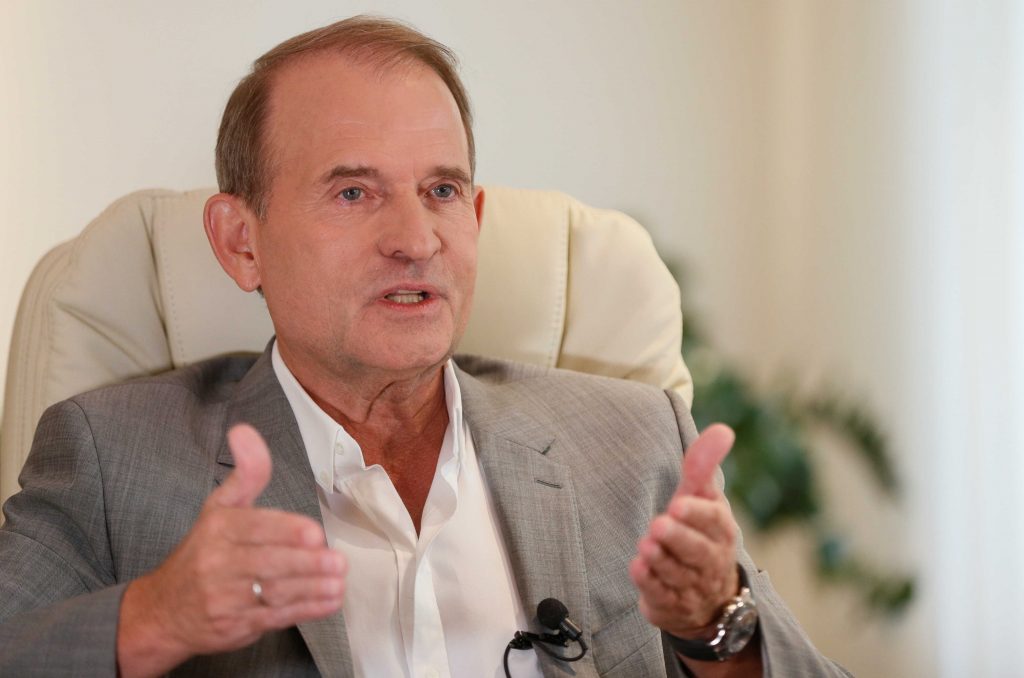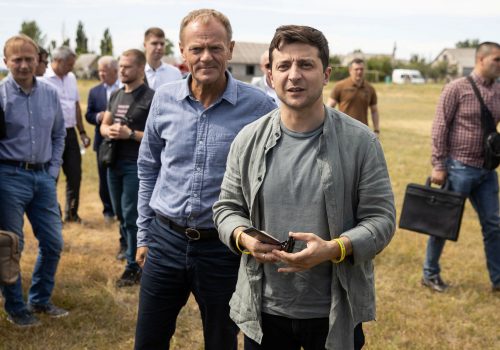The contest for control of Ukraine’s parliament has been just as bitter and divisive as the recent acrimonious presidential race that resulted in a landslide victory for political novice Volodymyr Zelenskyy. Ominously, beneath the surface, the parliamentary battle has been as much about revenge as about transformation.
This preoccupation with settling scores and seeking to influence the pace and direction of change is an inevitable feature of the major reconfiguration of political forces underway. But there is a danger that if vengeance is allowed to fester, the need for unity and cooperation in the name of the general goodwill be obscured.
After the victory of the Maidan which led to the ouster of President Viktor Yanukovych and many in his pro-Russian entourage, the remnants of Yanukovych’s former Party of the Regions were regarded as the primary agents of revenge, determined to reverse both Ukraine’s alignment with transatlantic structures and Ukrainization.
Their prospects were seriously weakened not only by the huge political setback which they had suffered and the patriotic response to Russia’s aggression, but also by the fact that the oligarchs quickly regrouped and adapted themselves to the new conditions.
During Poroshenko’s presidency, the oligarchs were not seriously threatened and the president essentially brokered their interests. Dnipro-based tycoon Ihor Kolomoisky, however, fell out with the others primarily over control in the energy sphere and ended up having his Privatbank, the largest bank in the country, nationalized.
During the build-up to the 2019 elections, the pro-Russian vote split. The rump of the former Regions Party and its allies who had been united in the makeshift Opposition Bloc parliamentary faction were unable to agree on a presidential candidate; in November, two leading figures, Yuriy Boyko and Serhiy Lyovochkin, were expelled from the Opposition Bloc. They joined Vadym Rabinovych and Viktor Medevchuk and created the Opposition Platform–For Life.
In the meantime, two new factors had an impact. First, Zelenskyy’s meteoric rise to political prominence took potential votes away from the former Opposition Bloc. Second, the sudden reemergence of the notorious pro-Russian politician and businessman, Viktor Medvedchuk, whose moves to acquire control of additional Ukrainian TV channels and craftily link them via “tele-bridges” to Russian propagandistic ones, has introduced new discomfort if not outright anxiety in Ukraine. However, it does not mean that the threat of a pro-Russian revanche should be exaggerated.
The reality is that pro-Russian parties have limited popularity. In the first round of the presidential election, Boyko obtained 11.6 percent of the vote and Oleksandr Vilkul from the Opposition Bloc 4.15 percent. The latest polls indicate that Opposition Platform–For Life could get around 12 percent, and the Opposition Bloc may not make it into the next parliament.
Ironically, another force seeking revenge, though for different reasons, is Poroshenko and his hastily formed European Solidarity Party. During the presidential election campaign, the former president dropped his gentlemanly “European” image and crudely portrayed Zelenskyy as a de facto stooge of Moscow and puppet of Kolomoisky. While failing to address the reasons for the crisis of public confidence in him and state institutions, Poroshenko depicted himself as the savior of Ukraine from the Russian peril supposedly embodied by his opponent.
On April 21, Poroshenko was crushed by a nearly three to one margin. The scale of the defeat did not lead him to draw sober conclusions or moderate his tone. If anything, he has become more strident and continued to move to the right. His supporters continue to present themselves as “true” Ukrainians, and the majority of voters who back Zelenskyy as second-rate Ukrainians, misguided at best, but in all probability, “unpatriotic.” Even the name adopted by Poroshenko’s party suggests that he alone is the defender of the country’s European orientation.
Poroshenko’s divisive tactics threaten to undermine the progress made in recent years to forge a modern Ukrainian political nation. And it’s not helping the former president in the polls either. His party is unlikely to get even 10 percent in the parliamentary elections.
There is a third source of revenge–Kolomoisky, who has become the joker in the pack. Understandably, he wants to get even with his business and political opponents and has made no secret of this. But, given his former close business connections with Zelenskyy and the widely held belief that the two were in league until recently, he appears disgruntled by the fact that the new president is keeping him at arm’s length. The oligarch’s recent statements are not helpful for Zelenskyy either; Kolomoisky proposed that Ukraine should follow the Greek example and default on its foreign debt, and called the conflict with Russia in the Donbas an internal civil war. As Zelenskyy continues to demonstrate his independence, Kolomoisky’s behavior remains unpredictable.
Finally, the revenge motive has also crept into Zelenskyy’s own position. He and his team have clearly been frustrated by the resistance put up Poroshenko’s allies in parliament. It failed to approve his new political appointments and to adopt important laws that would have opened the way forward. So instead, the former comic actor, whose detractors glibly dismissed as an inexperienced “clown,” has decided to show his teeth.
Firing top customs and finance officials is one thing. Most recently, he threatened to ban all officials and deputies from the Poroshenko era from holding office. It’s hard to know if this is merely pre-election rhetoric, or a thunderbolt that could cause serious damage.
At this critical time of political reconfiguration against the background of continuing serious external and internal challenges, the exacerbation of internal divisions because of the thirst for revenge is the last thing Ukraine needs.
Bohdan Nahaylo is a British-Ukrainian journalist and veteran Ukraine watcher based in Kyiv, Ukraine. He was formerly a senior UN official and policy adviser, and director of Radio Liberty’s Ukrainian Service.
Image: Viktor Medvedchuk, leader of Ukraine's Opposition Platform-For Life political party, speaks during an interview with Reuters in Kyiv, Ukraine July 12, 2019. REUTERS/Valentyn Ogirenko

